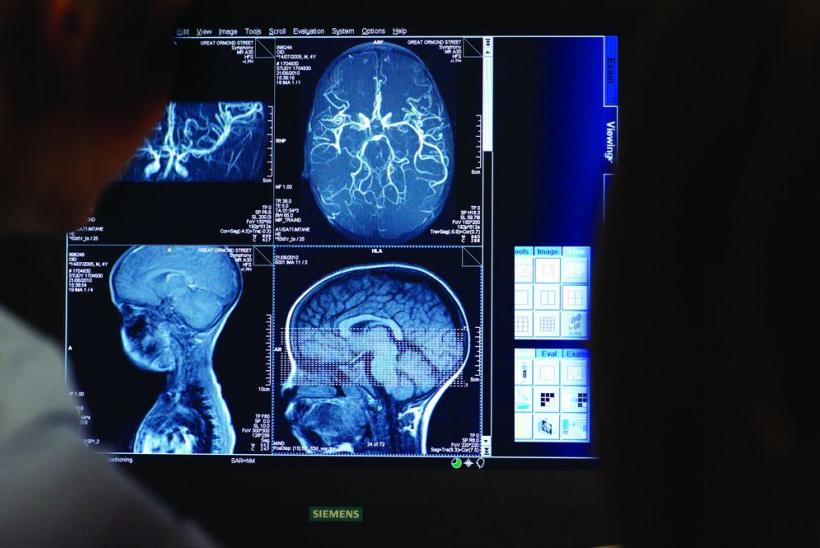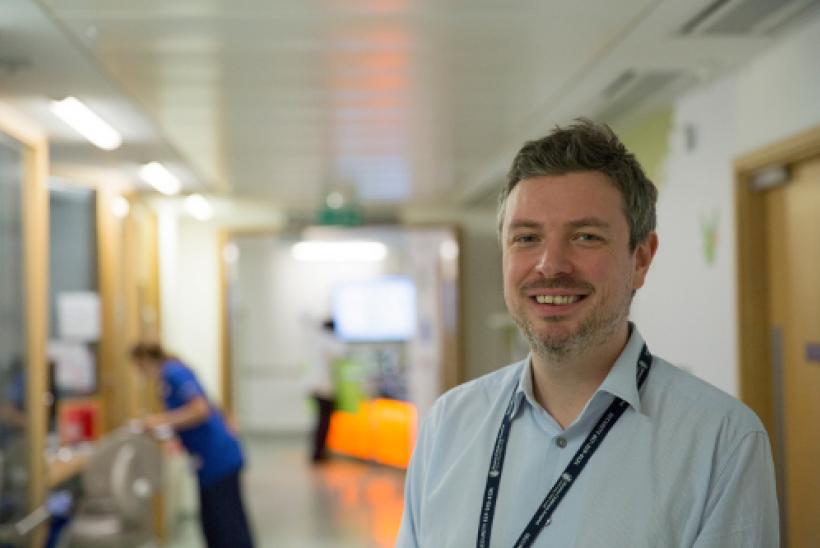World Brain Day: Pioneering procedure in London offers hope to children with hydrocephalus
Children with hydrocephalus have been offered new hope through a revolutionary technique, ETV-CPC, which reduces the risk of fluid production in the brain, and often means less follow-ups for patients compared to the traditional brain shunt procedure. The procedure, now available to UAE patients treated at Great Ormond Street Hospital (GOSH), is set to improve the lives of thousands of babies with hydrocephalus, one of the most common birth defects.
Hydrocephalus is a condition where the patient has a build-up of fluid in the brain, this causes an abnormal widening of spaces in the brain. The widening can cause harmful and possibly fatal pressure in the brain. An unusually large head is the main sign of congenital hydrocephalus. The condition is common in babies who have spina-bifida and children who get infections such as meningitis in their early childhood.
One to two of every 1,000 babies are born with hydrocephalus, which makes it as common as Down’s syndrome and more common than spina bifida or brain tumors. A study conducted in Abu Dhabi over a period of three years showed that 16.6 per 1000 births have severe malformation with 72% of newborns being Arab. GOSH performs approximately 400 hydrocephalus surgeries every year, of which 10-20 cases are patients from the Middle East.
Consultant paediatric neurosurgeon, Dr Greg James, from GOSH explains that there are no medical therapies available to treat hydrocephalus and the only options are surgical. “The traditional way to treat hydrocephalus is with a shunt. While it is still a very good operation that is conducted commonly, it leaves the patient with a permanent tube in the body to allow for the draining of the fluid. The limitations with any tube or mechanical device is that it can snap, it can get blocked, it can get infected and cause problems. ETV-CPC gives the patient the chance to avoid the lifelong burden of care that comes with having a shunt,” Dr. James added.
ETV-CPC is a well-established procedure that was originally designed to create a cost-effective and permanent solution for children in Africa as it results in less follow-ups.
“The procedure is well-tolerated and only takes an hour or two. The child can then go home within a day or two of the operation. There is reassurance for Middle Eastern families that with ETV-CPC, there is less chance that they will need to access specialist care very quickly. Unlike with a shunt, for example, which can get blocked and then needs to be treated immediately by a specialist neurosurgeon - which is not always possible to access locally,” he says.
Dr. James points out that every case is different and it is important to choose the right operation for the child. “ETV-CPC is less likely to work for children who need an immediate solution and sometimes the child will have to have to come back and have a shunt. But if ETV-CPC works, it is a relief from a long-life of follow-ups. We need to have a discussion as part of a multidisciplinary team and with the family to make the right choice for the patient,” he explains. Dr James estimated that the majority of cases GOSH sees are still undergoing shunt surgeries, however half of them are good candidates for ETV-CPC.
Dr. James believes that this operation, which is now available at GOSH, offers international patients the chance to have a better quality of life and limits the life-long burden of care which often comes with having the traditional shunt procedure.



